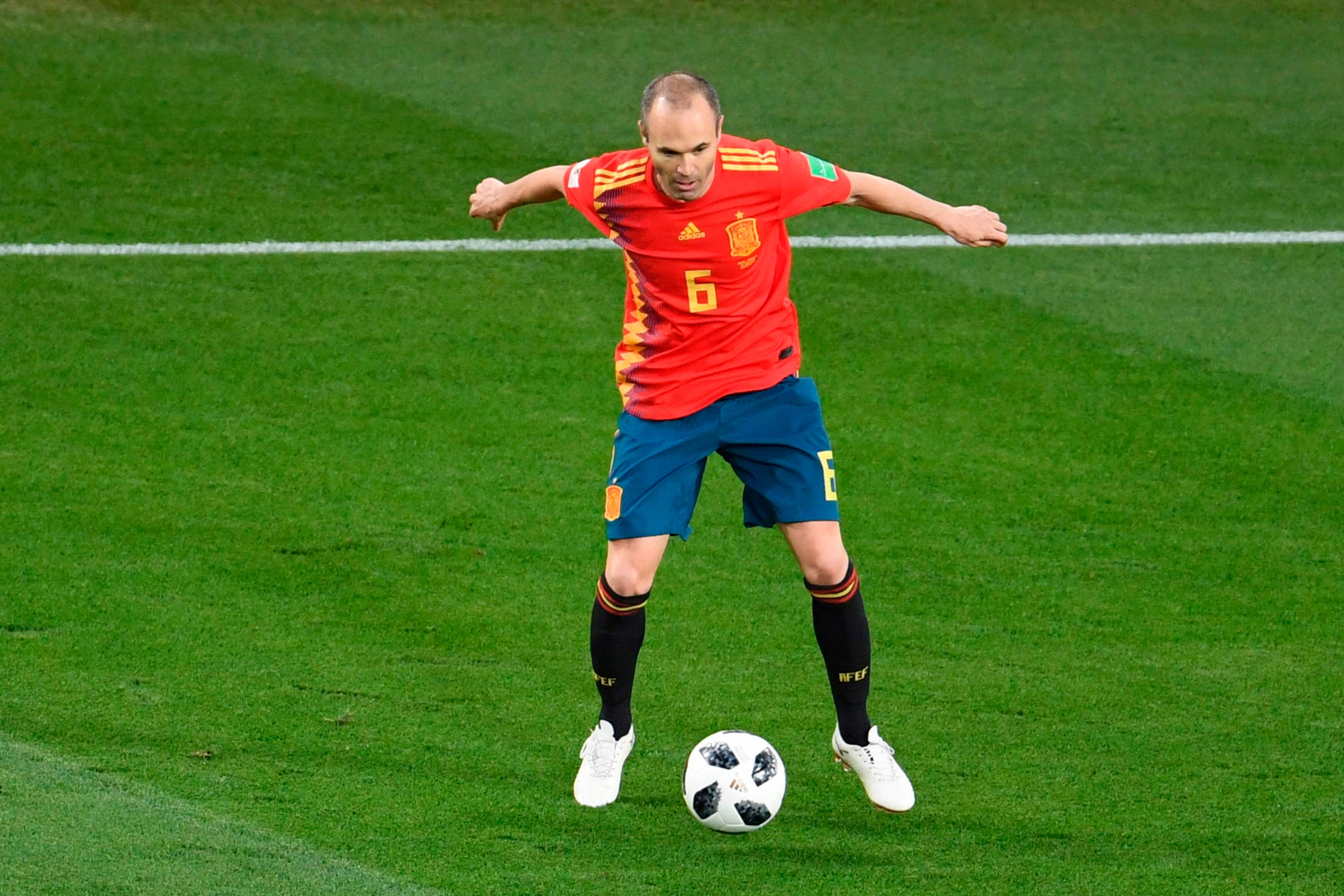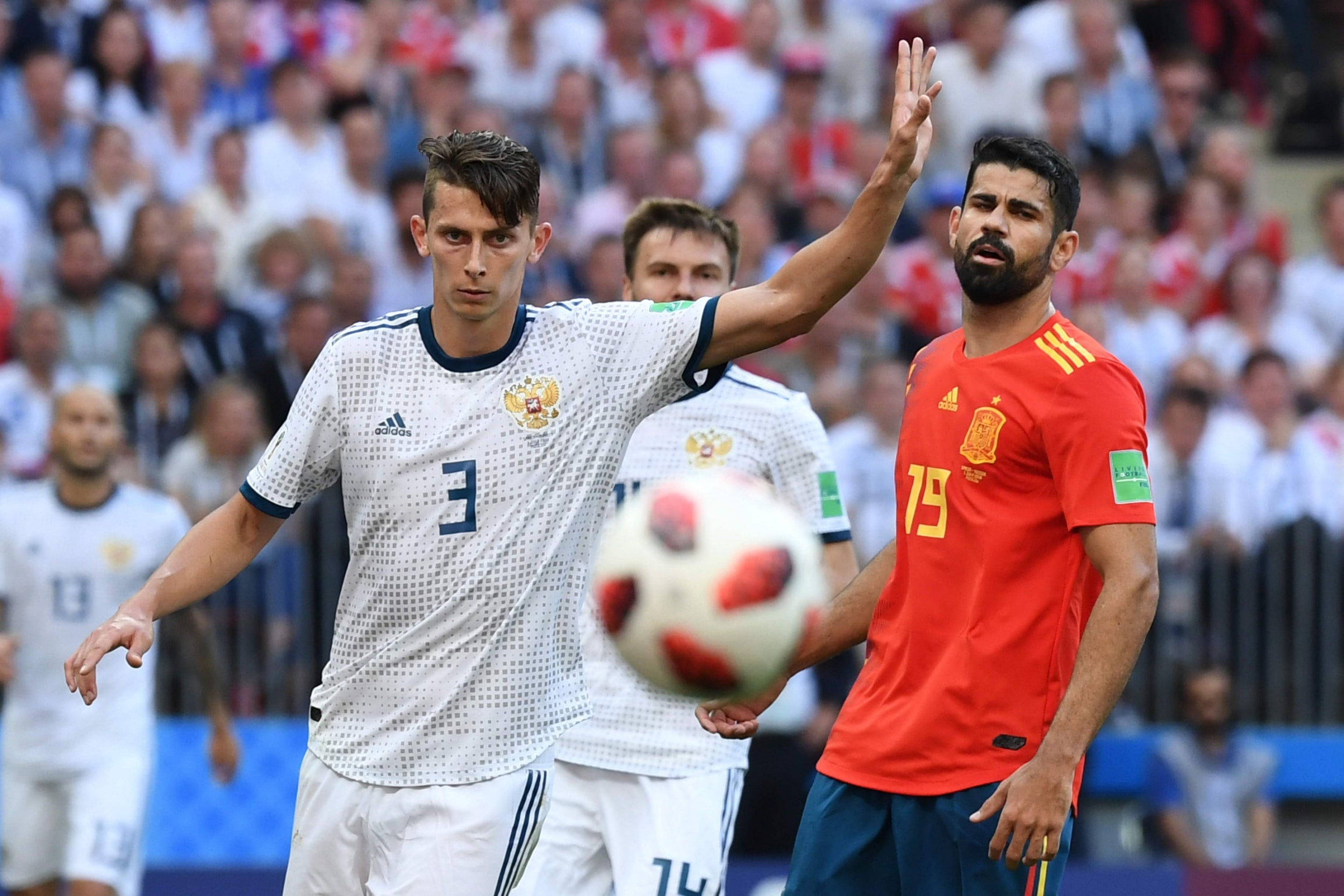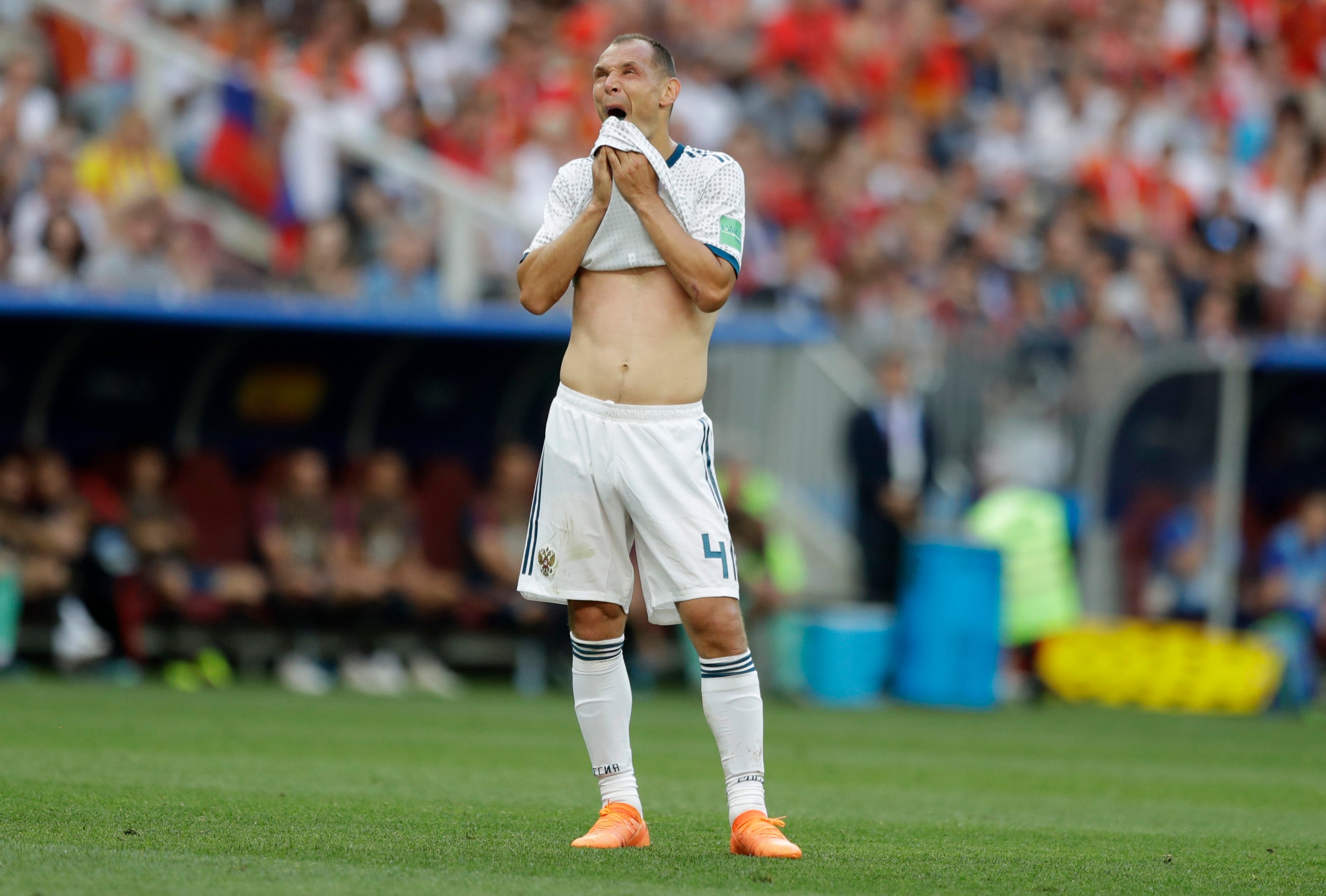Spain vs Russia, World Cup 2018: Spain struggle without Andres Iniesta, Russia produce the perfect game plan, are big teams losing their edge?
Spain 1-1 Russia (Russia win 4-3 on penalties): Five things we learned from the last-16 clash in Moscow

Your support helps us to tell the story
From reproductive rights to climate change to Big Tech, The Independent is on the ground when the story is developing. Whether it's investigating the financials of Elon Musk's pro-Trump PAC or producing our latest documentary, 'The A Word', which shines a light on the American women fighting for reproductive rights, we know how important it is to parse out the facts from the messaging.
At such a critical moment in US history, we need reporters on the ground. Your donation allows us to keep sending journalists to speak to both sides of the story.
The Independent is trusted by Americans across the entire political spectrum. And unlike many other quality news outlets, we choose not to lock Americans out of our reporting and analysis with paywalls. We believe quality journalism should be available to everyone, paid for by those who can afford it.
Your support makes all the difference.After trading goals in the first half, Russia held firm to knock out the 2010 World Cup winners Spain in this tournament's first penalty shoot-out.
Goalkeeper Igor Akinfeev saved both Koke's and Iago Aspas' penalty efforts as the hosts stunned one of the tournament favourites.
Spain took advantage of Russia’s early poor defending when Sergei Ignashevich was more concerned with Sergio Ramos than he was with Asensio’s cross as the ball deflected off the Russian defender’s leg and into the net.
Gerrard Pique gave the referee an earful and picked up a yellow card for his protests against a penalty being awarded for Russia. Pique was penalised for handling the ball as he rose to jump and challenge for a head, and Artem Dzyuba made no mistake from the spot.
Russia held firm after equalising and frustrated Spain who struggled to find a way through the host’s sturdy defence as the game went to extra time.
In extra time Spain thought they had a penalty when Ramos and Pique went down in the box under tight marking and after looking at the incident, Video Assistant Referee (VAR) decided the referee on the pitch did not need to review his decision to not give what looked like a penalty.
Here's five things we learned from the Luzhniki Stadium:
Spain playing the long game with Iniesta
When the teams were announced 90 minutes before the game, you would be forgiven for double-taking when ‘Andres Iniesta’ was shown on the bench. It ends a run of 21 consecutive starts in major tournaments which stretches back to June 2010.
It was a sign of the times for Iniesta and Spain who handed Marco Asensio his first start of the tournament. Iniesta, 34, perhaps represents one of the last remaining players from the ‘old guard’ that dominated world football, David Villa, Carles Puyol, Xavi, Iker Casillas and Xabi Alsono have all retired from international football or football altogether since starting together in the 2010 final.

Luckily for Spain their replacements are certainly not lacking in quality. Asensio immediately left his mark on the game and delivered a brilliant cross to set up Sergio Ramos to score the opening goal with a little help from Sergei Ignashevich.
Iniesta eventually came on in the 67th minute and Spain immediately began to improve. He almost won the game but his late shot was well saved.
Spain lack cutting edge
Spain had 75 per cent of possession at half time but only managed one more shot on target than their opponents. For all their impressive passing and tiki-taka play, there was no incision. Isco, Asensio and David Silva were all playing in the way which they have done all their career but were unable to get Diego Costa into the game.

Costa has spearheaded Spain’s attack throughout the tournament and for all his power, his movement in the middle of the pitch against five defenders meant he had no luck in dangerous areas. In the first hour Costa did not exchange a single pass with Asensio or David Silva.
‘Frustration’ was the key word around Spain’s performance. So many passes were sideways and backwards as Russia sat back and watched them play in front of them.
Russia execute the perfect game plan
Spain were not the only side to spring a surprise with their starting lineup. Denis Ceryshev who plays his club football for Villarreal did not start despite scoring three goals in this tournament. The change in personal allowed Stanislav Cherchesov to play a back five and protect 38-year-old centre back Ignashevich.
The game plan was fairly straightforward. Put five across the back, allow Spain no space around the edge of the box, then hit Artem Dzyuba on the counter attack who can hold the ball up for Aleksandar Golovin. Even when Spain took a brief lead, Russia still looked fairly comfortable.

Big teams lose their edge
Germany, Argentina and Portugal may have been three names punters will have been delighted to pull out of office sweepstakes. But all of them have already boarded the plane back home, exiting the tournament earlier than expected. The downfall of all three has been determined, well drilled and structured defences.
In this World Cup it appears that there has been a decrease in the joy that the better nations are having against smaller sides. Morocco, Iran and now Russia have all pushed Spain very close, and have their well organised defence to thank for it.
The average position of the 20 outfield during the second half of normal time was very close-knit. Spain were pressing high but could not get past the five defenders occupying the space on the edge of the box and it made for a very congested game.
History made with extra time sub
History was made in the seventh minute of extra time when Russia brought on Aleksandr Erokhin for Daler Kuzyaev, their fourth change. This was the first year that teams are allowed to make an additional substitute in extra time and Spain also took advantage by bringing on Rodrigo for Asensio.
Russia were the bigger beneficiaries of the additional substitute and were looking very tired in midfield before Erokhin came on and immediately put his fresh legs to good use with industrious work to close down space in the middle.
Rodrigo had the Spanish bench on the pitch ready to celebrate when he turned Vladimir Granat then tested Igor Akinfeev at his near post.
Join our commenting forum
Join thought-provoking conversations, follow other Independent readers and see their replies
Comments